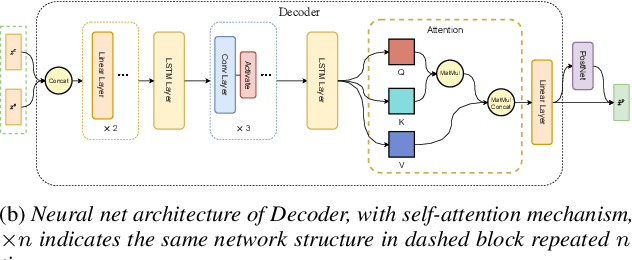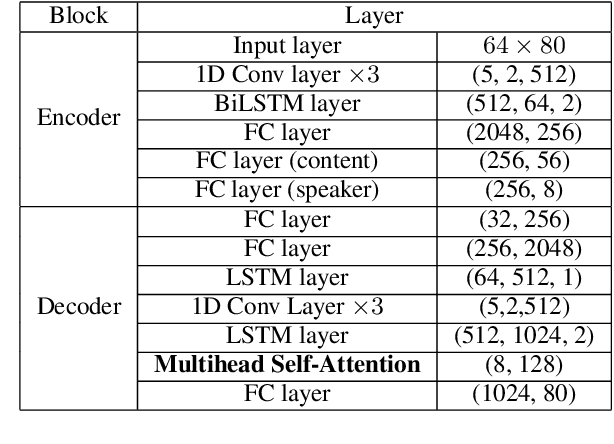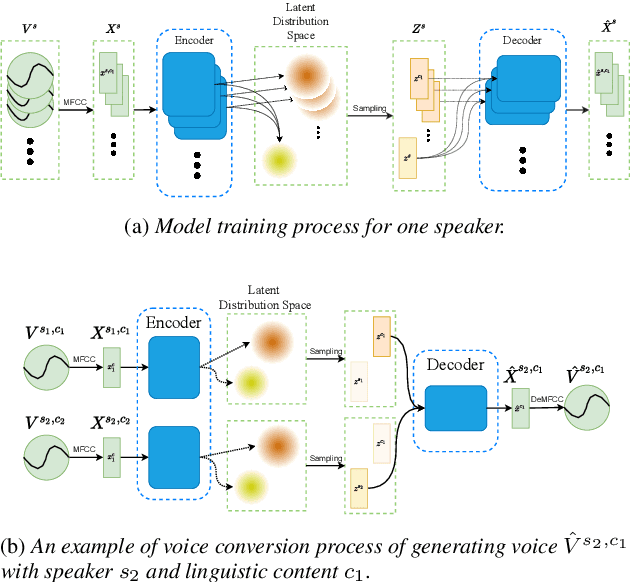Enhancing Zero-Shot Many to Many Voice Conversion with Self-Attention VAE
Paper and Code
Mar 30, 2022



Variational auto-encoder(VAE) is an effective neural network architecture to disentangle a speech utterance into speaker identity and linguistic content latent embeddings, then generate an utterance for a target speaker from that of a source speaker. This is possible by concatenating the identity embedding of the target speaker and the content embedding of the source speaker uttering a desired sentence. In this work, we found a suitable location of VAE's decoder to add a self-attention layer for incorporating non-local information in generating a converted utterance and hiding the source speaker's identity. In experiments of zero-shot many-to-many voice conversion task on VCTK data set, the self-attention layer enhances speaker classification accuracy on unseen speakers by 27\% while increasing the decoder parameter size by 12\%. The voice quality of converted utterance degrades by merely 3\% measured by the MOSNet scores. To reduce over-fitting and generalization error, we further applied a relaxed group-wise splitting method in network training and achieved a gain of speaker classification accuracy on unseen speakers by 46\% while maintaining the conversion voice quality in terms of MOSNet scores. Our encouraging findings point to future research on integrating more variety of attention structures in VAE framework for advancing zero-shot many-to-many voice conversions.
 Add to Chrome
Add to Chrome Add to Firefox
Add to Firefox Add to Edge
Add to Edge